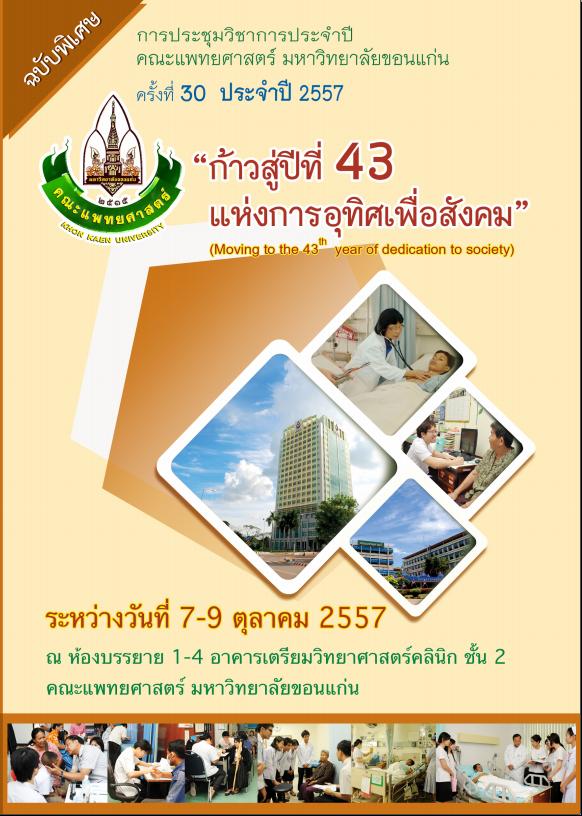Treatment Outcomes of Patients with HbE β-Thalassemia in Srinagarind Hospital
Abstract
Background and Objectives : HbE β-thalassemia is genetically inherited hemoglobin disorder resulting in chronic hemolytic anemia. Blood transfusion keeping near normal hemoglobin is proved to correct the ineffective erythropoiesis. This study aim to investigate the treatment outcomes of patients with HbE β-thalassemia in Srinagarind hospital.
Patients and Methods: A retrospective and a cross-sectional studies were done in patients aged under 18 years with at least 1 year follow- up in the pediatric department, Srinagarind hospital. Most of the patients had received regular transfusions to keep near normal hemoglobin and iron chelators were given when serum ferritin was more than 1000 mcg/L.
Results: The total of 66 patients; 28 males and 38 females were included. The mean age was 11 years 5 months. Impaired growth (height < 3th percentile) was found in 11 out of 66 patients (16.9%), AIHA in 12/66 (18.1%), subclinical hypothyroid 22.5%, 10 % of patients had hypoparathyroid and 16/43 (37.2%) had gallstone. No evidence of chronic leg ulcer and diabetes in all patients. Splenectomy was performed in 20 of 66 patients (30.3%) of whose 20% had post splenectomy thrombosis.
Conclusions:There were still high complications in thlassemia treatment outcomes especially endocrinopathies. Appropriate treatments of HbE β-thalassemia create a major challenge.



